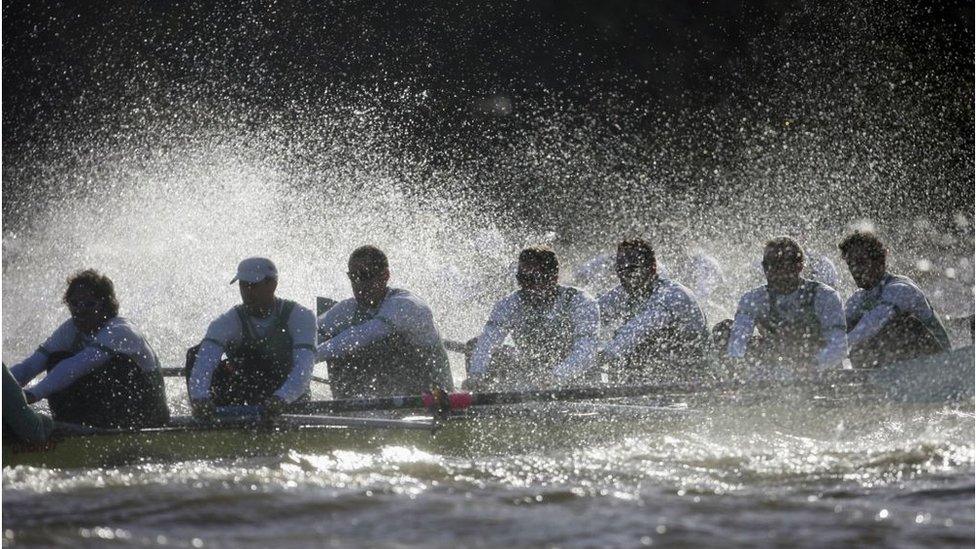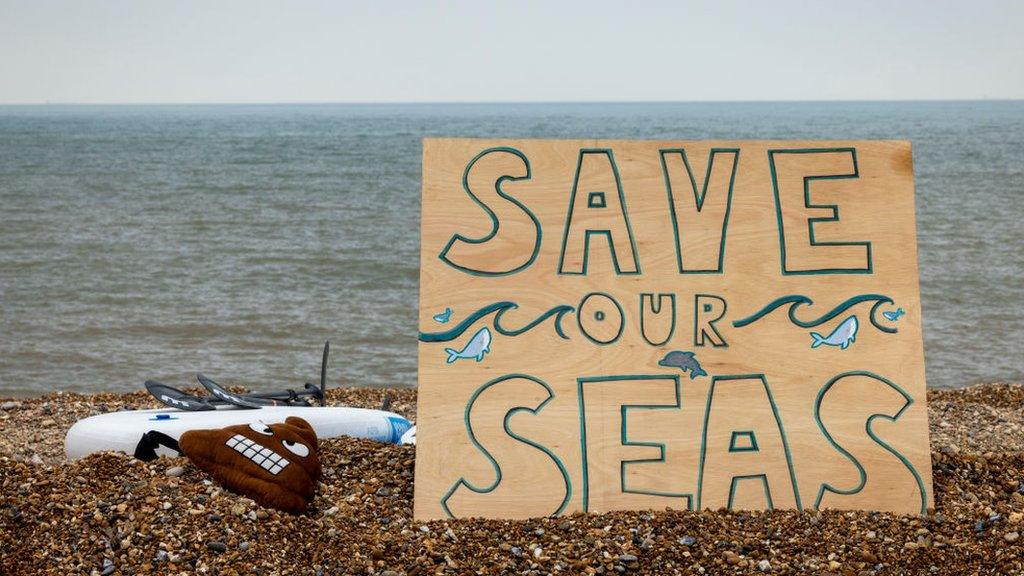Steve Backshall describes River Thames pollution as 'toxic'
- Published
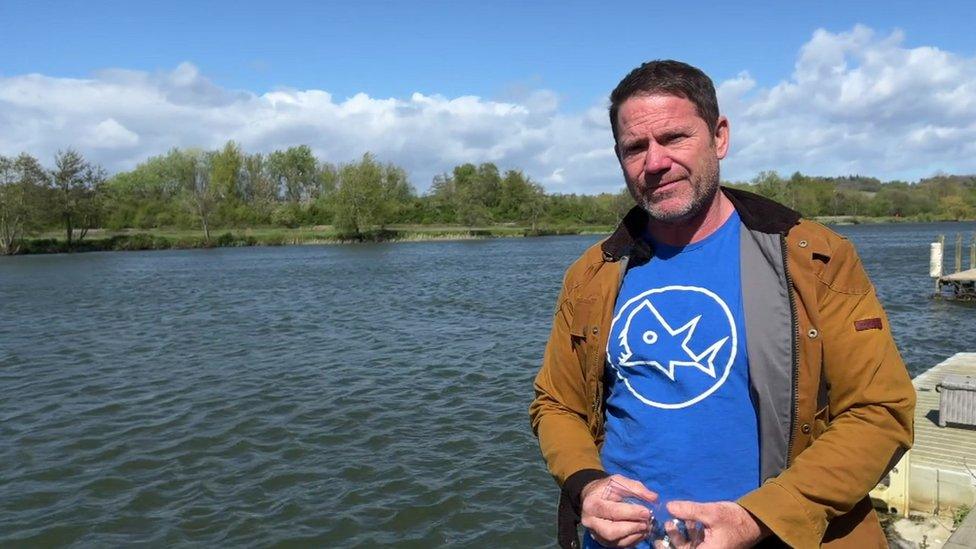
Steve Backshall said the test results were "terrifying"
Television naturalist Steve Backshall has described pollution found in the River Thames as "toxic".
Bangor University analysis found high levels of norovirus and E. coli in water taken near the border between Berkshire and Buckinghamshire.
Samples were taken downstream from Little Marlow Sewage Treatment Works.
Thames Water, which operates the works, said all discharges from the site had been fully compliant with environmental law.
Mr Backshall, who is known for his nature and travel programmes, lives next to the river with his wife - Olympic rower Helen Glover.
He said: "I've been living here for 10 years, kayaking this stretch of river for at least 25, and what's happened to it in recent years is absolutely heart-breaking."
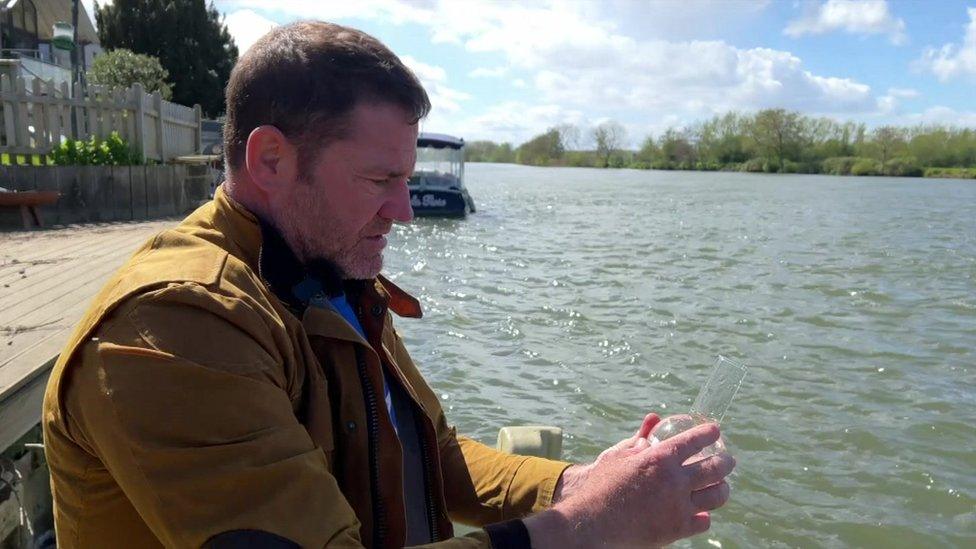
Mr Backshall sent the samples to Bangor University for testing
Samples taken by him were analysed by the Bangor University waste water research centre - with tests showing high levels of potentially harmful bacteria.
He said the test results were "mind-blowing and terrifying in equal measure" and were described by scientists as "a death potion" for the river that "could lead to total annihilation of the ecosystem".
"Right now I wouldn't go in the river, and I would seriously reach out to anyone who is a wild swimmer, or anyone who uses the river in any capacity, to stay out of it until it has been given a chance to clear," he added.
Dr Christian Dunn, who worked on the project, said the samples highlighted a "three pronged attack" on the river that was a "trident of pollution" - with high levels of viruses and bacteria, environmentally damaging levels of excess nutrients, and added unknown pollutants all serious cause for concern.
In particular, the study found an "extraordinarily high" estimated 39,000 gene count per litre of norovirus in the river, much more than the 10 gene count per litre required to make a human ill.
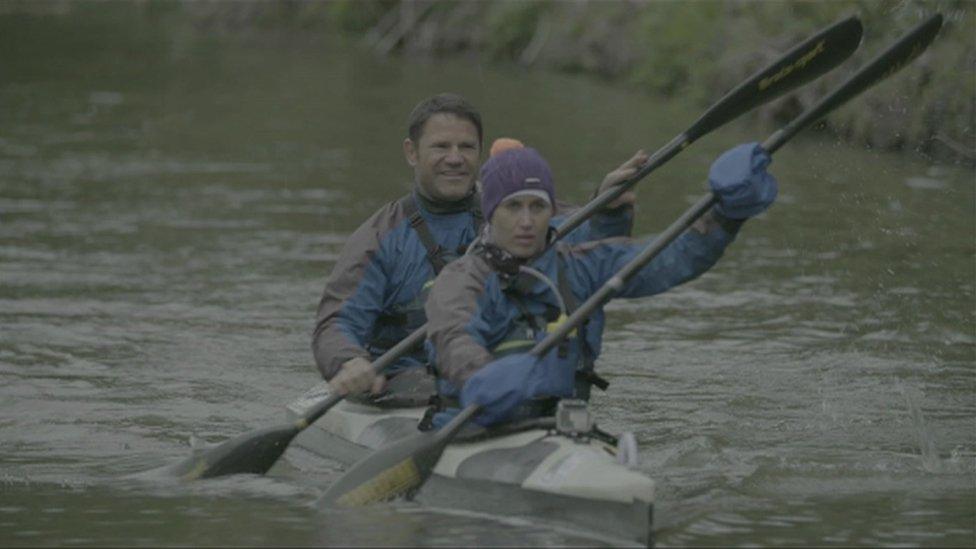
Mr Backshall, who is married to rower Helen Glover, said he had been kayaking on the stretch of the Thames for 25 years
In a statement Thames Water said: "We will be hosting Steve on a visit to Little Marlow Sewage Treatment Works on Tuesday, and we'll have an opportunity to address Steve's concerns during the visit.
"Little Marlow Sewage Treatment Works is fully compliant with its effluent quality consent and its storm discharge permit, as set by the Environment Agency to protect river water quality and the associated ecosystem."
It added: "Taking action to improve the health of rivers is a key focus for us, and we are leading the way with our transparent approach to data."

Follow BBC South on Facebook, external, X, external, or Instagram, external. Send your story ideas to south.newsonline@bbc.co.uk or via WhatsApp on 0808 100 2240, external.
- Published5 April 2024
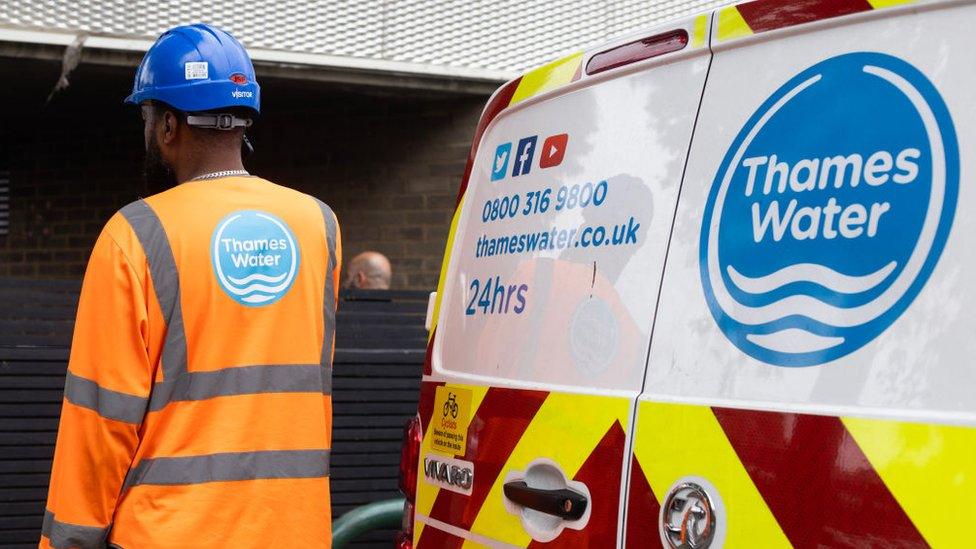
- Published27 March 2024
